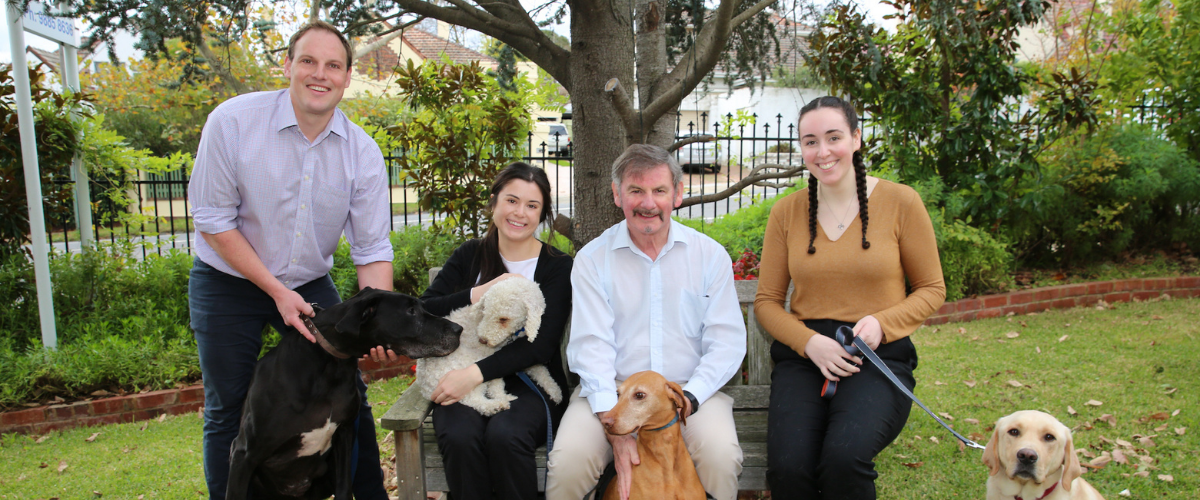
Puppy / Kitty Information
Worming
Your new pet will require a gastrointestinal all wormer that covers roundworm and tapeworm every 2 weeks until the age of 12 weeks, and then every 4 weeks until the age of 6 months. Some common brands of all-wormers are Drontal, Popantel or Exelpet all-wormer.
From 6 months you can consider monthly all in one chews such as nexgard spectra or comfortis plus. These can be found at pet shops or online. If you have any questions, please talk to reception.
Heartworm & ticks
Paralysis ticks are most commonly seen along the east coast of Australia, they are not a known problem in Melbourne.
Heart-worm is not a common issue in Victoria, it is most often seen north of Victoria.
If you are travelling outside of Melbourne please ensure you are using tick and heart-worm prevention, Nexgard Spectra is a popular choice.
Vaccinations
Puppies and kittens require vaccinations at 6-8weeks and again at 10-12weeks. Some people elect to have a 16week vaccination, this can be discussed with your vet.
Following this, vaccinations are required annually
Diet
We recommend a good quality dry food for all puppies and kittens. Avoiding wet food, bones, chicken necks etc. is recommended until they have settled in and developed a more robust immune system as they can lead to gastroenteritis (diarrhoea and vomiting) . Most puppies and kittens are more resilient after 6 months of age with diet changes.
Microchips
If you are unsure if your puppy or kitten is microchipped please call the clinic and we can scan for one.
When you get a new pet it is important you download a ‘Change of Ownership’ form from Central Animal Records (note this is seperate to council registration). They can be contacted at www.car.com.au
We try and avoid flea medications and heart-worm treatments until 6 months of age unless required. This is discussed in your initial consultation.
Preparing your pet for Surgery
- No food after 8pm the night before
- No restrictions on water intake
- No heavy exercise on the day of surgery
- Please take your pet for a very short walk so they can toilet before being admitted
- Drop off is between 9am-10am
- Pick up time: will be provided at drop off, is usually between 4:30pm-6:30pm
Be prepared to sign an anesthetic consent form confirming you understand that ALL sedation, anaesthetics and surgeries carry some risk. We cannot go ahead with the surgery until this has been signed.
The admitting nurse is required to clarify the procedure being performed.
Additional procedures can not be added on the day (eg removing lumps, teeth cleaning, ear plucking etc.). If you wish to add to the planned procedure please call reception at least 3 days in advance to ensure we can allocate sufficient time. Please note the primary procedure will be prioritised, added procedures will only be done if it is safe to do so.
Home Care after Surgery
We do our best to send all patients home clean and dry, including taking your pet out to the toilet and using special dry beds. Despite our best efforts some animals will still go home damp.
Things to know:
General anaesthetic will dry respiratory secretions, your pet may go home with a dry mouth.
The post-operative pain injection can make some animals a bit wobbly.
Your pet may vomit when they get home, this is normal. Following dental procedures there may be some blood in the vomit.
Some wound discharge and swelling is normal. If you are concerned, please call the clinic.
Care at home:
Animals have trouble maintaining heat after a general anaesthetic, it is important to keep them warm following surgery.
After dental work your pet may have some blood around their mouth. We do clean them after surgery but the gums/sockets continue to weep during recovery. You can clean their mouth the next morning when it is less sore to touch.
Your pet can have a small meal (1/3 of normal) after 8pm, if they are not interested in food this is okay, they may feel nauseous. Skip dinner and offer them breakfast in the morning as usual.
It is important to give your pet rest following any surgery. 3 days of home rest is standard. Do not let your pet run/ play with other animals until advised. On lead walks are advised until sutures are removed.
Do not let your pet swim/ have a bath following surgery.
If you are concerned or have any questions please call us OR for after-hours assistance, call the Animal Emergency Centre.
Ear Issues
Ear issues are a frustration for many dog owners. Given the nature of dogs ear canals, ear issues are often managed, not cured.
We strongly suggest avoiding swimming/ getting water down the ear canal as this can initiate ear issues. Take care when bathing your dog to avoid water getting in their ears.
Allergies also play a role so discuss allergy management with your vet if your pet has persistent issues with their ears.
Inspecting ears periodically with cotton wool is advised. Ear drops are a prescription medication and cannot be purchased over the counter. They always require a consultation before they are dispensed.
Behavioural Issues
If your pet is experiencing behavioural issues, please make an appointment. Behavioural issues are often complex, we may suggest specialist training, a veterinary behavioural specialist, medication or home training.
Need to book an appointment?
We are generally fully booked and are therefore unable to see non urgent walk-in cases.
To make an appointment please call the clinic.
